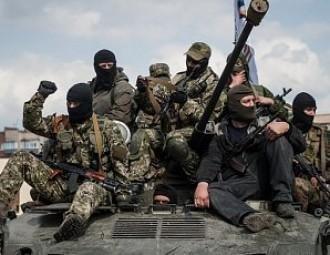Uladzimir Matskevich: Geneva agreement is a raw material which doesn’t deescalate tension in Ukraine

Through negotiations between the US, EU and Ukraine, Russia has implicitly recognized new Ukrainian authorities.
Three days after the Geneva agreement was signed, at Easter, a provocation accompanied by an attack at a roadblock happened in Slavyansk. Russian media report 3 separatists to be dead; Ukrainian Ministry of Internal Affairs says 3 people have died.
What is awaiting Ukraine in the future? Is it escalation or de-escalation of the conflict? Uladzimir Matskevich, the head of the Board of “EuroBelarus”, shared his opinion on the subject matter with the “EuroBelarus” Information Service.
- On April 17 US, EU, Ukraine and Russia signed “Geneva agreement”. What is your assessment of this document?
- I look upon this document as upon raw material, which doesn’t deescalate tension in Ukraine and doesn’t resolve problems present in the conflict. This is why unofficial statements, in which each side explains its own vision of the agreement, followed the signing of the document. Unfortunately, there is no saying that the conflict is going to be deescalated; in fact, it can even get worse.
Putin is still keeping to a line that it is not Russian military men or Russian intelligent services that are acting in the eastern Ukraine, so he can’t give direct order to the separatists. Whereas the West in convinced that it is Kremlin who is to blame for destabilization of the situation in Ukraine, and so the West threatens to broaden sanctions against Kremlin.
“Geneva agreement” is a declaration about the intentions to continue settlement of Russia-Ukraine conflict in a round-table discussion.
- Why does Russia need the the “Geneva agreement”?
- Russia had to sign it; earlier Moscow declared the necessity of negotiation process between the EU and Russia about the future of Ukraine. Through negotiations between the US, EU and Ukraine, Russia has implicitly recognized new Ukrainian authorities.
- The apprehensions that Kremlin made a pause only to gather strength are being fulfilled these days. Is Moscow repeating the Crimean scenario?
- It is hardly true; Kremlin will hardly dare to repeat the Crimean risky venture.
- What is Russia striving to achieve then?
- Kremlin doesn’t need territory; it needs destabilization of the situation in Ukraine. The main goal of the separatists acting in the eastern Ukraine is to weaken Ukraine’s statehood and authorities in order to attain the external control and get the right to boss around in Ukraine.
- The actions of Ukrainian authorities are becoming more and more complicated and unclear. Almost a week has passed after the start of an anti-terror operation; however, it brought nothing except that Slavic separatists become armed. What is going on?
- Of course, we can present Kiev authorities with lots of claims; but it should be borne in mind that the Ukrainian statehood and Ukrainian army have been extremely weakened over the last decades. So it is difficult to speak about the readiness for some decisive actions even in the case of emergency.
Russia is leading a war of a different kind: first of all, it is an information war, provocations, agents, and few countries were faced with such kind of situations. And it is the unpreparedness of the official Kiev to fight off provocations that gives an advantage to the Russian actions in Ukraine.
-
03.01
-
07.10
-
22.09
-
17.08
-
12.08
-
30.09










































